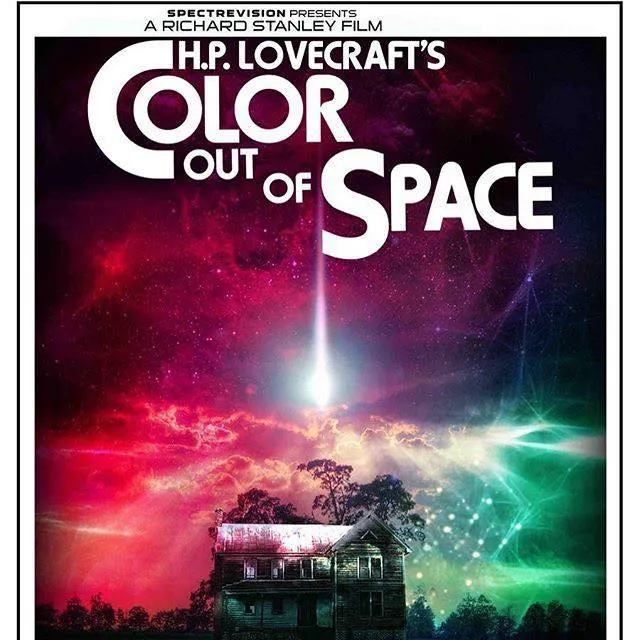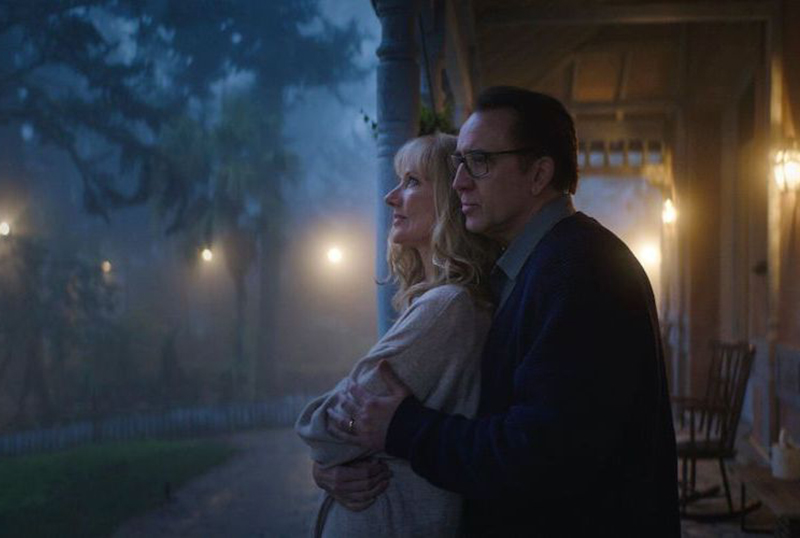Rating: 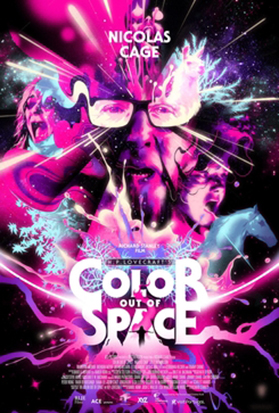
8.5/10
Cast:
Nicolas Cage as Nathan Gardner
Joely Richardson as Theresa Gardner
Madeleine Arthur as Lavinia Gardner
Brendan Meyer as Benny Gardner
Tommy Chong as Ezra
Elliot Knight as Ward Phillips
Q’orianka Kilcher as Mayor Tooma
Directed by Richard Stanley
Color Out of Space review:
Richard Stanley was once one of the most prime directors to keep an eye on after the cult hits Hardware and Dust Devil, but became the center of one of the most notorious blacklistings in Hollywood after being fired from the infamous 1996 adaptation of H.G. Wells’ The Island of Dr. Moreau after only three days of production. Now, 23 years later, the South African director is making his feature-length comeback with a new adaptation of the acclaimed H.P. Lovecraft short story Color Out of Space, and it may just be his best work yet.
Set in the rural hills near Arkham, Massachusetts, the story follows the Gardner family, patriarch artist Nathan (Cage), financial advisor Theresa (Richardson), occult-obsessed Lavinia (Arthur) and space-intrigued Benny (Meyer) as they trade their city lives for a more peaceful life in the woods after inheriting Nathan’s father’s estate. As they all attempt to adjust to the new secluded lifestyle, a meteorite crashes down in the nearby woods, which affects the water supply and plant life in the area and brings with it something terrifying that threatens the Gardner family and the few neighbors they have in the hills.
Having been a fan of Lovecraft since childhood when his mother read his stories to him, there are few people better to have developed an adaptation of the author than Stanley, who took the six years since announcing the project to properly develop the story in a way that would remain faithful to the source material while also updating it in a way to shock even the most veteran of genre enthusiasts. The atmosphere remains eerie and deliberate, keeping the mystery going and giving hints as to what’s going on while focusing on the increasing madness the Gardner family all experience in various forms.
One of the best updates to the source material is some of the transformations the meteorite causes following its Earthly arrival, which even as a frequent horror viewer prove to be some of the most shocking and horrifying visuals put to screen the genre has ever seen. Grotesque in a way that’s both prudent to the story’s themes while also horrifying to the general eye, Stanley and his crew masterfully use practical effects and brief glimpses at the terrors to toy with audiences’ imaginations and send them into unsettling territory.
In addition to the terrifying visuals and eerie story, the film is supported by strong work from its cast, namely that of Cage as the patriarch trying to hold his family together and Richardson as a mother struggling to adjust to her new rural life for the sake of her marriage and her kids. Cage, practically the virtuoso of madness at this point, explores a character trait he’s very familiar with and yet does so in a more restrained fashion than normal that keeps his descent compelling and heartbreaking to watch.
The only real problems with the film come in the forms of the beginning and the ending, which finds the writing to be a tad more lackluster and unoriginal compared to the rest of the script. In setting up our characters and wrapping up the story, Stanley and co-writer Scarlett Amaris have drafted lines that feel too similar to other works in the horror genre and don’t feel like fair representations of the deeper struggles and conflicts they are all going through as the story progresses.
Overall, the film proves to be a compelling and shocking bit of existential and cosmic horror that is skillfully, and quite beautifully, directed by Stanley and well-acted by its stars and confirms that he is still a directorial force to watch and that Cage may have finally found a new genre that is perfect for his talents.
Color Out of Space
-
Color Out of Space
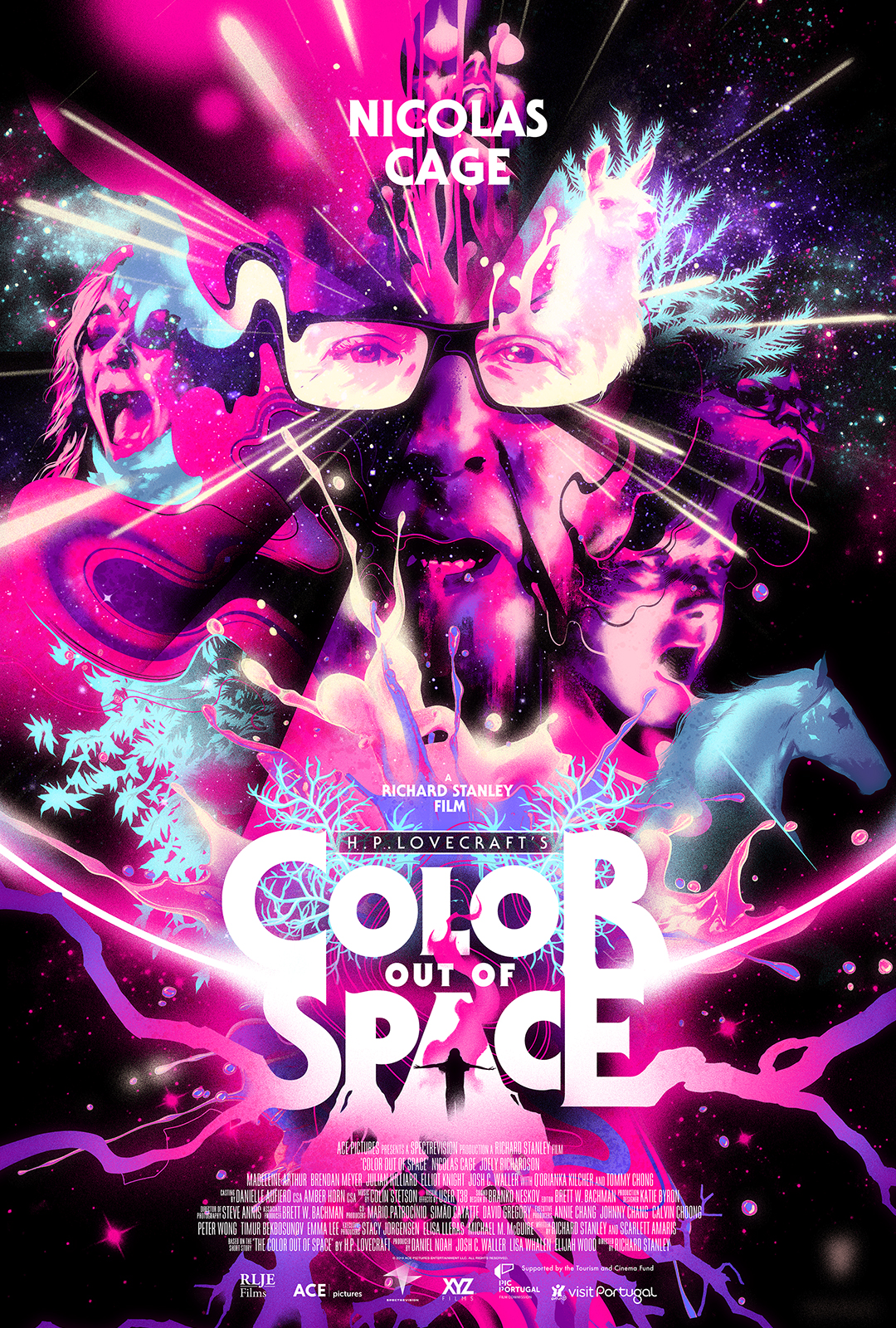
-
Color Out of Space
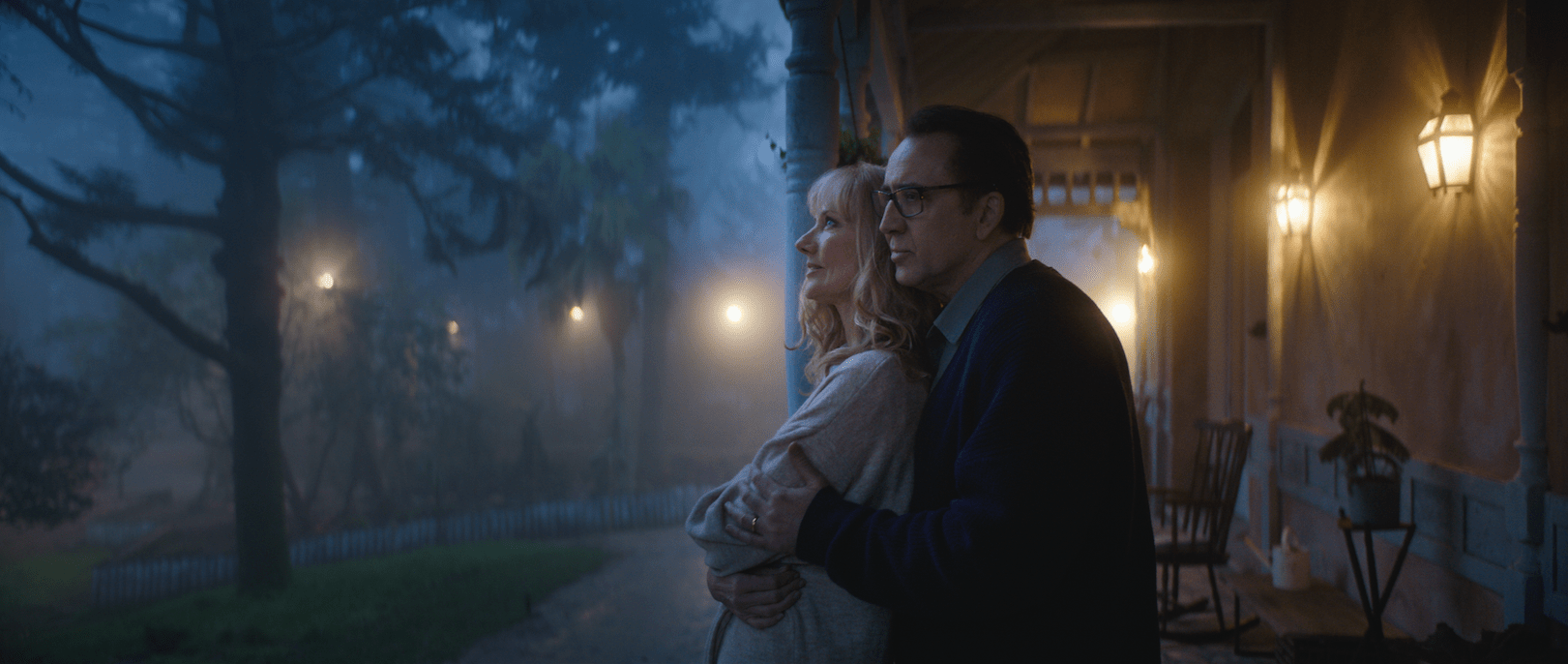
-
Color Out of Space

-
Color Out of Space
